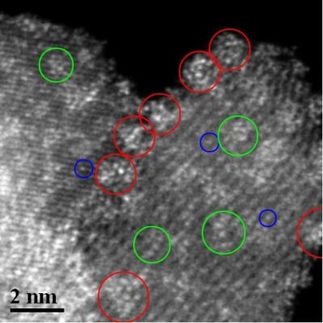Degussa places priority on the innovative characteristics of plastics
New Functional Polymers project house has taken up business
Advertisement
Heat-reflecting windows based on functional polymers to shut out the heat in summer and keep it indoors in winter; ultra-light high-refraction spectacle lenses that even people with extremely poor vision find pleasant to wear - such promising characteristics are to come true with the help of nanomaterials. This is the goal of the project house Functional Polymers@Interfaces and Surfaces opened on September 1, 2003 by Degussa AG of Dusseldorf, Germany. In this new project house, some 20 scientists will be investigating the field of functional polymers under the management of Dr. Ralf Richter in Hanau-Wolfgang, Germany, for the next three years.
Degussa Management Board Chairman Prof. Utz-Hellmuth Felcht comments: "The new project house is an expression of the great importance that Degussa as a specialty chemicals company attaches to research and development. And this is a policy we continue to adhere to despite the difficult economic climate since R&D is where our future products come from."
Functional or tailor-made polymers are far more versatile than classical construction materials as they have made-to-order properties, such as conductivity, scratch-resistance and weather-resistance. They are gaining increasing importance in such fields as medical technology, electrical engineering and energy, communication and information technology.
The new project house will combine know-how from specialty polymers, nanomaterials and surface and interface modification. Experts from different Degussa business and service units will be working with university and industry partners to develop not only functional polymers but also methods of producing them.
Tailor-made properties: Nanomaterials make polymers special
Basing its work on concrete customer wishes, the project house will be systematically conducting research into different scientific areas in pur-suit of the system solutions the customer is looking for. For example it will be examining polymer/nanomaterial interaction, or how scratch-resistant surfaces work. The knowledge gained in the process will enable Degussa to swiftly develop technologies and polymer systems capable of creating the desired characteristics. The project house team has set its sights on achieving not only scratch resistance on the basis of inorganic nanoparticles but also chemical, gas and moisture barrier effects as well as conductivity and UV resistance. In comparison to organic UV stabilizers, inorganic nanoparticles have the advantage that they do not "bloom out" or cause pollution when processed.
The next challenge will be to realize combinations of these characteristics in the form of wafer-thin plastic films. This will be a prerequisite for the use - for example - in decorative films. Such films have a significant influence on enhancing the surface properties and thus the use characteristics of skis. Photovoltaic technology and light-emitting diodes for use in lighting are other areas of application for such films. Furthermore the project house will be setting up an innovative technology platform based on Degussa's varied process engineering competencies and current university research. Such concentration of expertise is to ensure that new technologies are swiftly taken to the production-scale level.
Three Degussa project houses, including Functional Polymers @Interfaces and Surfaces, are currently conducting research in the fields of biotechnology, catalysis and functional polymers. The Nanomaterials project house brought its work to a successful close late last year, and its know-how has been transferred to Degussa's internal start-up Advanced Nanomaterials. Each time a project house completes its allocated task, Degussa starts up a new one in a three-year rhythm.





























































